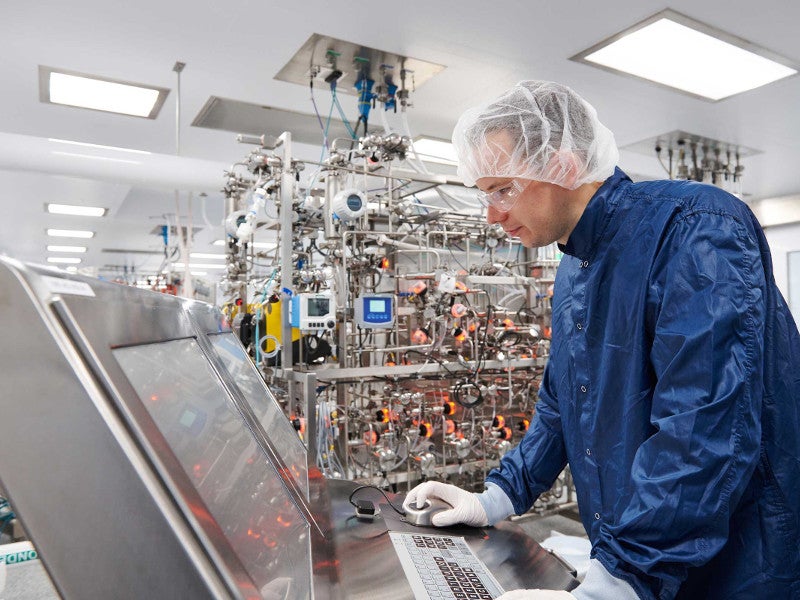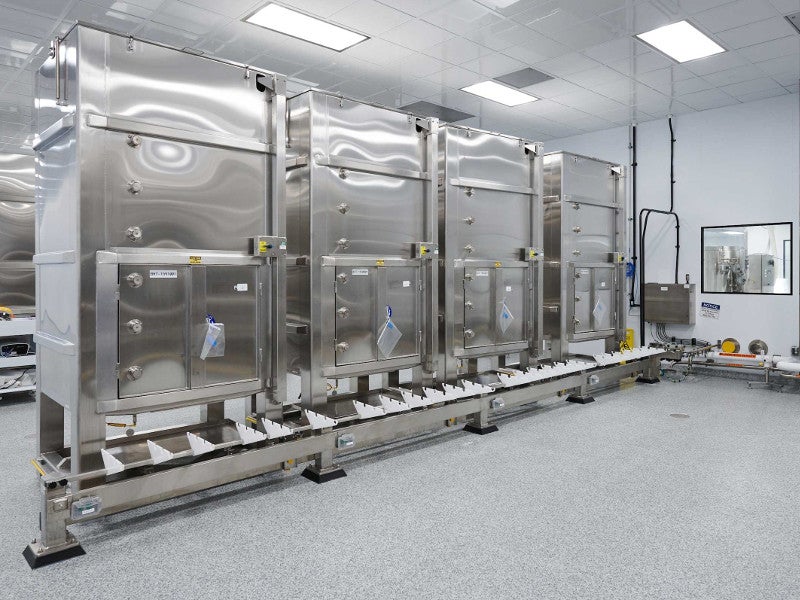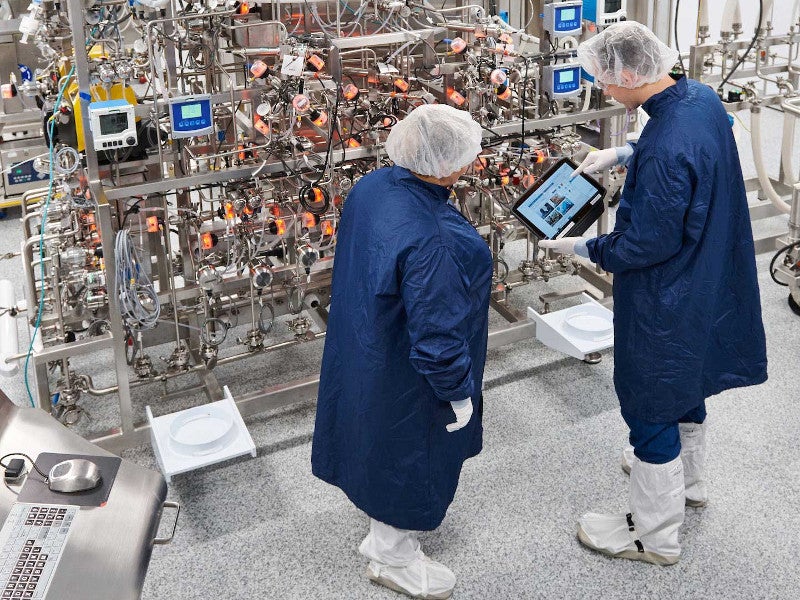Sanofi, a biopharmaceutical company based in France, opened a digital biopharmaceutical manufacturing facility in Framingham, Massachusetts, US, in October 2019.
The new facility will produce biological medicines for the company’s speciality care portfolio.
It is expected to improve the company’s biopharmaceutical production capabilities and support the transformation of its research and development (R&D) pipeline for the production of biologics-based therapeutics.
The facility supports modular manufacturing and enables the development of personalised drugs.
Details of Sanofi’s digital manufacturing facility
The digital manufacturing facility is equipped with collaborative robots named Cobots, which work along with the employees to monitor and identify the conditions for safe operation for rapid development of sophisticated drugs.
Autonomous Mobile Robots (AMR) at the facility will then transport raw materials and finished products to different areas within the facility, as well as move single-use equipment.
All the upstream and downstream operations are carried out with intelligent equipment and sophisticated process technology in the facility. Single-use bioreactors equipped with disposable bags are used for upstream processes, including fermentation and cell amplification.
The bioreactors are fitted with in-line sensors for taking multiple measurements of various data and parameters, which are used to create a fingerprint of the process.
The produced cell is purified through a process, which is monitored by a number of sensors that share the required information. Monoclonal antibodies are developed in single-use fermenters.
Details of Sanofi’s digital manufacturing facility technology
Sanofi’s digital manufacturing facility features digital twin technology, which is a three-dimensional computer model of the facility. It is connected to the same sensors and data as the real plant to track and control operations in real-time.
The advanced data analytics solutions identify and rectify any potential problem in the facility, thereby improving the product quality. It works continuously to optimise flow for seamless operations.
A standard single batch of cells generates three billion data points from more than 5,000 parameters. The data is transferred to sophisticated storage and analysis infrastructure via a high-speed network. The findings of the analysis are displayed through interactive screens placed throughout the facility.
The plant also features integrated quality laboratories and augmented reality to support technicians.
Benefits of the digital manufacturing facility
The digitally-enabled facility accelerates the commercialisation of novel medicines through the developmental stage. The use of disposable bags in the bioreactors instead of a stainless steel culture vessel increases the flexibility of operations.
The real-time documentation of operations in the facility allows paperless manufacturing solutions with electronic records of a batch.
The facility uses an ultra-modern approach for large-scale production of complex medicines based on demand. It improves the agility, flexibility, productivity and cost-effectiveness of the manufacturing process and reduces the energy and water requirements. The use of robotics also optimises inventories and flow of logistics.
Sanofi’s digital transformation
Sanofi has invested approximately €4.7bn ($5.51bn) in the last five years to enhance its production capabilities as part of its strategic plan to invest €600m ($705m) a year by 2020 for the development of the company’s biotech capabilities.
The first state-of-the-art, digitally-enabled facility of Sanofi is located in Geel, Belgium. The company also intends to digitalise other facilities located in Toronto (Canada), Suzano (Brazil), Waterford (Ireland) and Sisteron (France).
The company trains employees under the Sanofi Manufacturing System. More than 1,100 employees have been trained on the system since 2016. The company partnered with innovative start-ups such as iObeya to improve its digital solutions, such as artificial intelligence and drone technology.





